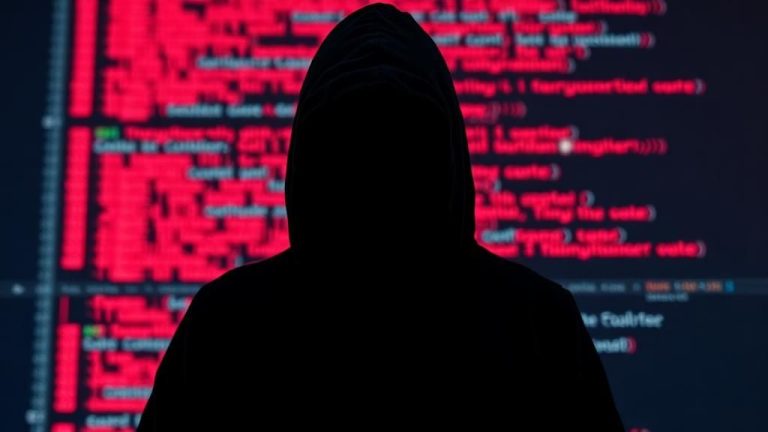The Shollenberger Januzzi & Wolfe data breach has been confirmed after the Qilin ransomware group claimed responsibility for a large-scale cyberattack on the Pennsylvania-based law firm. According to the group’s dark web leak site, more than 161 gigabytes of sensitive data were exfiltrated, including client case files, legal correspondence, financial documents, and internal communications.
The breach was announced on November 7, 2025, and marks another significant incident in Qilin’s series of attacks targeting professional service providers and law firms across the United States. The size and nature of the stolen data suggest that the attackers had extensive access to internal systems prior to discovery.
Background on Shollenberger Januzzi & Wolfe LLP
Shollenberger Januzzi & Wolfe LLP is a prominent Pennsylvania law firm providing legal services in areas such as personal injury, workers’ compensation, medical malpractice, and disability law. The firm represents clients across multiple regions, maintaining a large portfolio of confidential case files and private client data.
Law firms like Shollenberger Januzzi & Wolfe routinely handle privileged communications, medical records, and settlement documents, making them valuable targets for cybercriminal groups seeking both financial and strategic leverage. The exposure of such data can have lasting consequences for both the firm and its clients.
Details of the Breach
The Qilin ransomware group has listed Shollenberger Januzzi & Wolfe LLP on its dark web leak portal, claiming responsibility for stealing 161GB of data from the firm’s internal systems. The group published a summary of the stolen content and has threatened to release the files publicly if a ransom is not paid.
According to the threat actors, the compromised data includes:
- Confidential client records and case documentation
- Court filings, depositions, and settlement materials
- Medical reports and insurance documents
- Employee payroll and HR information
- Internal financial and administrative files
Initial samples shared by the attackers appear to contain attorney communications and case evidence, verifying that genuine client data has been compromised. If fully leaked, the breach could expose thousands of individuals’ personal, medical, and financial information.
About the Qilin Ransomware Group
The Qilin ransomware group, also known as Agenda, is a financially motivated cybercrime operation that operates on a ransomware-as-a-service model. The group has been active since 2022 and is known for targeting law firms, hospitals, manufacturers, and educational institutions.
Qilin’s affiliates use a double extortion strategy, encrypting victims’ systems while also exfiltrating critical data to pressure companies into paying ransoms. When payment negotiations fail, the stolen data is often leaked in full on their public portal.
The group’s past activity has shown a preference for professional services organizations, particularly those handling large volumes of personally identifiable information and financial data.
Potential Risks and Exposure
The Shollenberger Januzzi & Wolfe data breach poses serious risks to both the firm and its clients. Based on the stolen materials described by the attackers, the data set may include:
- Client PII: Names, addresses, phone numbers, Social Security numbers, and contact details
- Medical Information: Records related to ongoing personal injury or disability cases
- Financial Data: Invoices, settlement amounts, bank correspondence, and payment records
- Legal Files: Attorney-client communications, court filings, depositions, and discovery documents
- Employee Data: HR files, payroll information, and tax records
The exposure of legal communications or evidence could jeopardize ongoing cases and erode client confidence. Additionally, the inclusion of personal and medical data introduces identity theft and fraud risks for affected individuals.
How the Attack Occurred
While Shollenberger Januzzi & Wolfe has not released technical details of the intrusion, Qilin’s prior attacks follow consistent patterns. The group typically gains initial access through phishing campaigns, compromised VPN credentials, or unpatched remote access systems. Once inside a network, the attackers move laterally to identify valuable data repositories before exfiltrating files and deploying ransomware.
Forensic patterns in similar incidents suggest that Qilin uses tools such as PowerShell scripts, network scanners, and credential harvesting utilities to maintain persistence and control. The attackers often spend weeks inside the network before detection, ensuring that exfiltrated data includes the most sensitive and useful information.
Legal and Regulatory Impact
As a law firm handling medical and financial records, Shollenberger Januzzi & Wolfe LLP is subject to multiple privacy and data protection regulations, including the Health Insurance Portability and Accountability Act (HIPAA) and state-level privacy laws. If confirmed that personal data has been exposed, the firm may be required to notify clients, employees, and relevant state authorities.
The exposure of privileged communications could also raise ethical concerns under professional conduct rules, potentially requiring disclosure to the Pennsylvania Bar Association. Beyond regulatory issues, the breach may result in lawsuits or disciplinary reviews if negligence is found in data protection practices.
Company Response
As of this publication, Shollenberger Januzzi & Wolfe LLP has not released an official statement regarding the breach. No updates appear on the firm’s website or social media accounts. It is unknown whether the company has engaged with Qilin or law enforcement regarding the ransom demands.
Given the volume and sensitivity of the data, cybersecurity analysts expect that the firm will need to conduct a full forensic investigation, notify affected clients, and implement enhanced security measures to prevent further compromise.
Industry Analysis
Ransomware attacks on legal and professional service organizations have increased sharply in 2025. Threat actors recognize that law firms often lack enterprise-grade cybersecurity defenses but manage highly sensitive information. Compromises in this sector not only affect victims financially but also threaten client confidentiality and ongoing legal cases.
Experts warn that law firms must now treat cybersecurity as a critical component of professional ethics and client protection. Without stronger network segmentation, encryption policies, and incident response plans, even mid-sized firms remain at high risk.
How to Protect Against Similar Ransomware Attacks
Law firms and other professional organizations can reduce their exposure to incidents like the Shollenberger Januzzi & Wolfe data breach by implementing the following measures:
- Require multi-factor authentication for all user accounts and remote access systems
- Regularly update and patch VPNs, firewalls, and network devices
- Maintain encrypted, offline backups of all critical files
- Use endpoint detection and response (EDR) tools for early threat detection
- Limit administrative privileges and segment sensitive data from general access systems
- Conduct regular employee security training to identify phishing attempts
Individuals concerned that their personal information was exposed should monitor financial activity, review credit reports, and scan their devices with reputable anti-malware software such as Malwarebytes to ensure system safety.
Summary
The Shollenberger Januzzi & Wolfe data breach represents a major incident in the ongoing wave of ransomware attacks targeting U.S. law firms. With more than 161GB of confidential data stolen, the incident threatens to expose client information, court documents, and privileged communications. The attack underscores the urgent need for stronger cybersecurity practices within the legal sector.
For verified coverage of major data breaches and the latest cybersecurity updates, visit Botcrawl for expert analysis on global digital threats and ransomware incidents.



